Love Letters Continued: Samuel Sechler and Mary Davis, Part 3
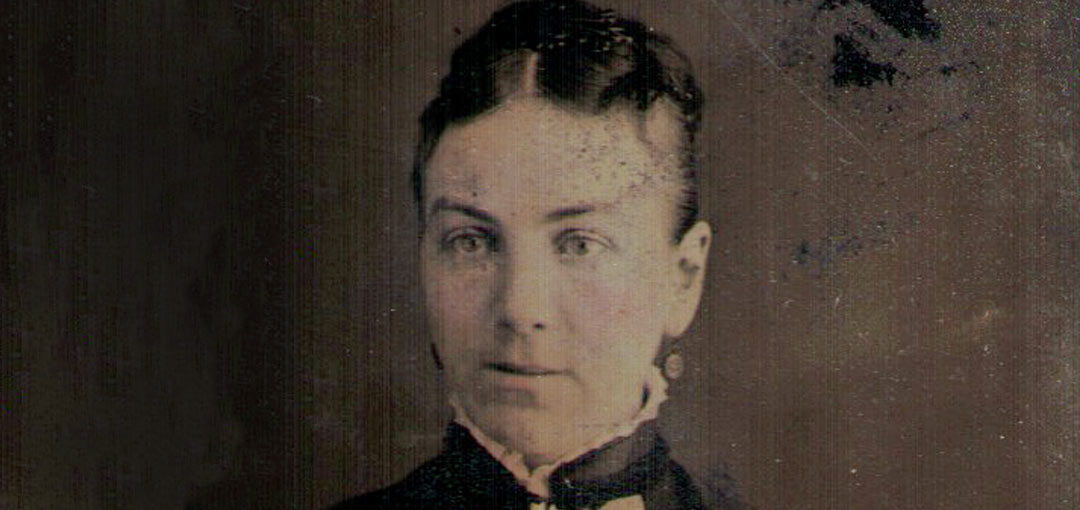
Samuel Sechler and Mary Davis were married on December 1, 1880. They are the parents of Hannah Margaret Sechler who married Clarence Charles Hagenbuch—great great great grandson of the patriarch Andreas and grandfather of Mark Hagenbuch. We are very fortunate to have several of their letters, back and forth to each other, that were written before and after they were married. It is a testament to the romance and accompanying, loving words that a couple used back in those days, words from written letters that are so uncommon in these modern times.
The year 1880 was a leap year as is 2020. Leap years are often associated with love and marriage. So it was for Samuel Sechler and Mary Davis, 140 years ago. We first met them in the two articles from 2016 (Article 1 and Article 2) which recounted their growing love. The last letter presented was from Jan. 28, 1880 from Mary to Sam. In that letter Mary called herself an “old maid” and mentions a “lady friend” of Sam’s that expected privileges because of it being a leap year. Mary also talks of being a hypocrite referencing a mysterious comment of asking Sam to “stay all night” at her house.
We continue with this dance of love through their letters. As always, I am thrilled by the language used in 1880 as compared to the grammatically ignorant texts and emails devoid of punctuation that we send today. Sam answers the January 28th letter within a few days, a letter which he wrote on February 1st.
Dear Mary,
According to [my] promise I did not read your letter until today. For me to say that I was surprised at the contents would be but a faint expression of my feelings I had taken, a thought as to your age. I supposed you were some older than me. But did not suppose you were as old as you state. But that does not alter the case a particle to me if it does not to you. I think you lack several years yet of being an “old maid”. I don’t hope you call yourself an old lady yet (if you do I do not). I am afraid Dear Mary you have not read my nature right if you think I would be guilty of doing such a dishonorable an act as to play you false in such a small matter as you speak of. I hope the time will come when we will understand each other better.
My sentiments Dear Mary are very affectionate toward you. I know not your sentiments toward me but hope they are very favorably inclined. As to that lady in Lewisburg I don’t care a straw for her nor any of her Leap Year privileges. . . . If you ever thought that I had any idea that you were acting the hypocrite to me I beg of you to banish the thought at once for I would as soon doubt my own mother as I would you. You are too kind hearted Dear Mary to be a hypocrite. In return please accept my heartfelt thanks for the respect you have always shown to me and hope it may ripen to something better and holier than respect. Please do not take it as an insult Dearest Mary for I mean every word of it.
I gave you a very poor an account of myself Saturday even when you said you knew nothing about me. I will give you our whole family history the next time I visit you if you desire to hear it. And then you can judge for yourself what kind of character I possess. Dearest Mary please let me hear from you as soon as possible, forgive me for writing to you so harshly. Write me a good long letter and don’t be backward in expressing yourself in a candid and straight forward manner.
Believe me always, your devoted friend and lover. S. Henry Sechler
Apples are good, Peaches are better, Remember me, And answer my letter. Sweetheart
This letter turns the corner for Sam’s written affections. He cares not about her age or the age difference between them, which we must note could be a hindrance in those days of cultural rights and wrongs. He puts her on the same pedestal as his own mother. He not only calls her “sweetheart” but also his “lover.” That is a huge leap in romantic words. And, as a genealogist, I wish I could have heard my great grandfather tell my future great grandmother the history of the Sechler family. What details would he tell her that we don’t know today? On other note: this is the only time he signs his letters as “S. Henry Sechler.” Why? I believe he was being playful in the end or maybe she had coyly called him “Henry” at one point, and he was recalling this as a possible pet name.
In the series of letters, next is an envelope marked “valentine” and addressed to “Miss Mary C. Davis, Milton, Pa.” There is no postmark or stamp on the envelope. It is not known if this was hand delivered in some way or if it was inside another envelope sent through the mail. The letter is a poem dated February 14th, 1880 and reads:
Dear Mary,
Long have I sought and vainly have I yearned. To meet some spirit that could answer mine: Then chide me not that I so soon have learned. To talk with thine.
Oh thou wilt cherish what some hearts would spurn. So gentle and so full of soul thou art: And shrine my feelings in that holy urn – Thine own true heart. An honor to which I am unworthy.
Yours ever – Sam
There is a small piece of printed paper inside this handwritten poem:
No, no my flame is not pretended, For oh, I love you most sincerely.
These are more romantically bold words and, along with the February 1st letter, must have certainly jolted Mary into realizing that Sam was very serious about their future together. On February 19th she writes in her spidery hand a letter that is up and down with emotions. She hints at her love for him but never seems to come right out and state it. Make note that Sam’s letters are very easy to read but Mary’s “scribble,” with misspelled words and run on sentences, lend themselves to me using a magnifying glass to decipher them! I have rewritten them here in a manner that is easily read and have only written what is most important as it is a long letter.
Dear Sam,
I suppose you are wondering why you have received no answer as yet to your letter. . . . I respect your sentiments as far as it is in my power at present hoping that you will have patience with me. You asked me to be candid, in this letter I will try and tell you only my letters always look stiff and formal when I commence to write. I always face backward like when we meet if only in the presence of Mother but when we are alone and I can look you in your honest eyes I feel contented and happy. . . . Thank you for your honorable compliment you paid me when you said you would as soon doubt your own mother as me.
. . . You have shown more confidence in me by not doubting as much as I have and I owe this to you when I tell you I have always tried to live just as near right as I can. . . . Some future time you may know all for I cannot tell all now for indeed Dear Sam my life has not been all sunshine. . . . Dear Sam, I will close hoping that no more misunderstandings may occur to mar our present hope. I am not given to writing poetry and will only add – Forget. Me. Not. and remember you are thought of very often as ever.
Yours, Mary Davis
On February 23rd, after a visit to Mary at her home, Sam becomes a bit bolder and begins the letter with “Dear Sweetheart.” Again, the full letter is not written here, only the most important excerpts. But, notice, that he begins many of the sentences with “Dear Mary.” We can only imagine that his love for her was overflowing as he wrote these words over and over.
Dear Mary,
You gave me a great deal of pleasure by writing of yourself as you did in your last letter, it is about all any person can do is to live as near right as they can. There is nothing in your past life, Dear Mary that would change my affections. . . . I believe there is nothing in your past life that you would withhold from me if I had the right to know. Dear Mary it is the one great wish of my heart to possess that right in the near future. Dear Mary, bear in mind I will never urge you to tell me anything, whatever you tell me must come at your own pleasure.
Please do not be offended at the way I write as there is to be no misunderstandings between us in the future. Dear Mary, I feel more at ease and happier while in your presence since I know you do not doubt me. I hope I may never give you any cause to doubt me again. Dear Mary, please accept my thanks for returning your sentiments so favorably, it is enough to bid me hope for the full return. Dear Mary I will bring my letter to a close hoping to hear from you soon. May heaven shower its choicest blessings upon you, is the wish of one that has more than a friendly regard for you.
Yours devotedly. Sam
Mary replies with a letter written on February 29th, leap day. Once again, her emotions are difficult to figure out and her run on sentences jump from one thought to another. It is very curious to wonder what she was thinking most of the time. But it seems that to her this romance was a roller coaster ride that was unfamiliar to her—a love from a good-looking suitor that was younger than she—most likely a pleasant problem!
My Dear Sam,
It is with pleasure that I will try to answer your welcome letter that I received Friday and was pleased that you enjoyed your visit and I hope you shall ever. And please accept my thanks for that saying of yours. That anything in my past life would change your affection for me and I can frankly say there is nothing that I would withhold from you for there is nothing in my own conduct that is that I can remember to be ashamed of as well.
Dear Sam I am writing this at Uncle Follmer’s and two little girls are capering around and asking me questions. That is my excuse for my many mistakes. . . . I wish you were here with me today, the air is perfumed with lemon blossoms and lots of others of your song. I have learned to [sic] verses and the chorus but the last verse does not seem to rhyme quite right and I will not learn that until I show you and then I will.
One of the mysteries of this letter was the reference to “Uncle Follmer.” The word before Follmer was difficult to decipher, but with my wife Linda’s and Andrew’s help, it was finally decided it was “uncle.” After further research, it was found that Mary Davis’s aunt, Eleanor McWilliams, was married to William Follmer, her “Uncle Follmer.”
As stated before, great grandmother Mary’s writing is difficult to read, her spelling and grammatical errors are numerous, compared to great grandfather Sam’s writing which basically has no errors and is bold in its construction and legibility. Mary concludes this February 29th letter with the following, transcribed exactly as she wrote it with few punctuation marks or capital letters, some misspelled words, and her commonly written run on sentences.
. . . excuse my Short letter and regard to my note for I desire [deserve?] you eny [sic] Thing you may chose to write for not Telling you Sooner and Dear Sam I know you will forgive me when you know my Shrinking nature I will close my poor letter. hopeing [sic] to hear from you Soon (and remember) you have my best wishes for your Happiness.
Ever. yours. Adieu. Mary.
The climax comes in Samuel Sechler’s next, very important letter dated March 12, 1880. To be continued…

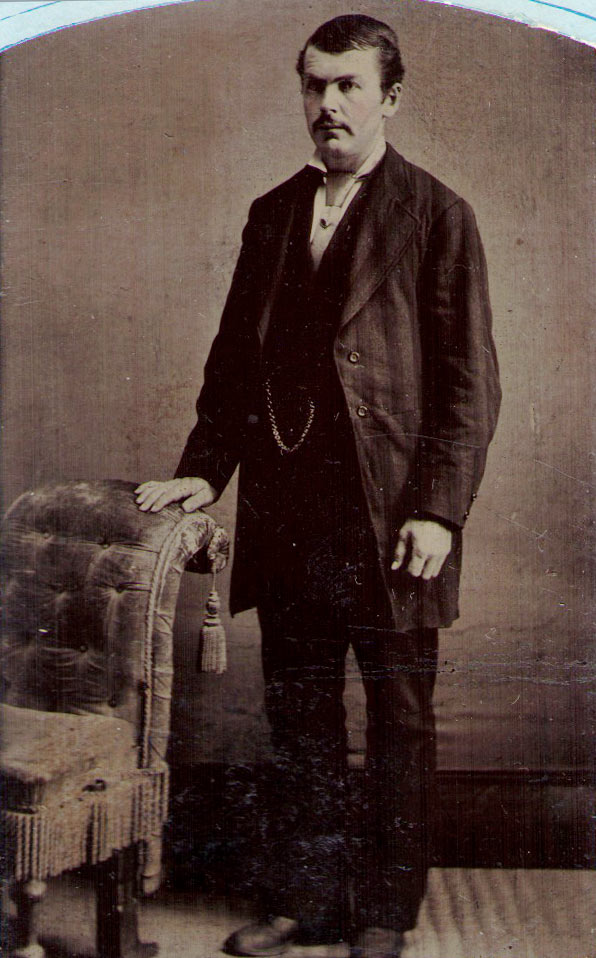
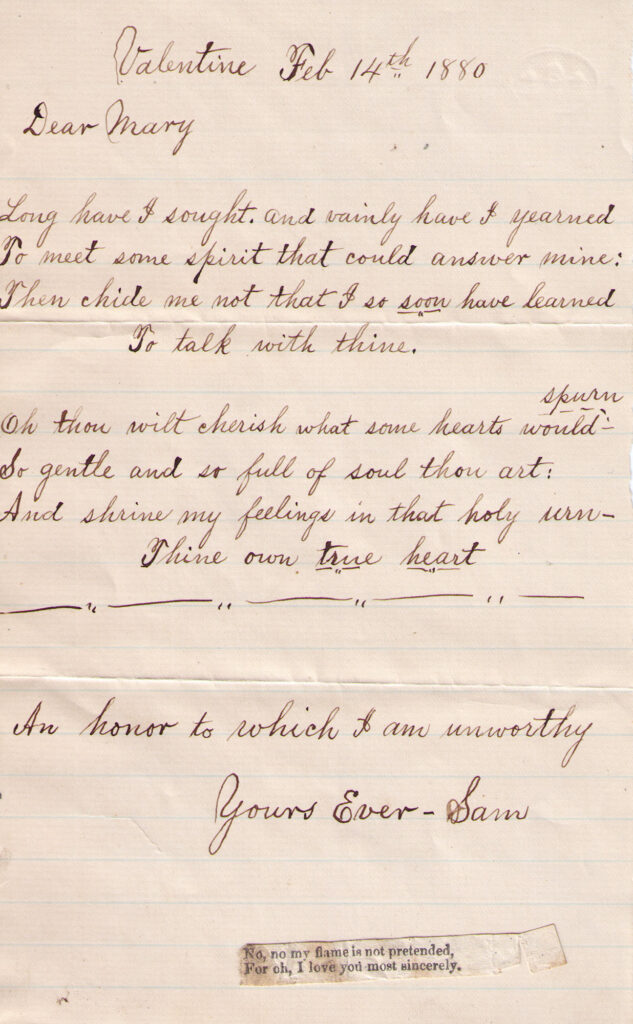
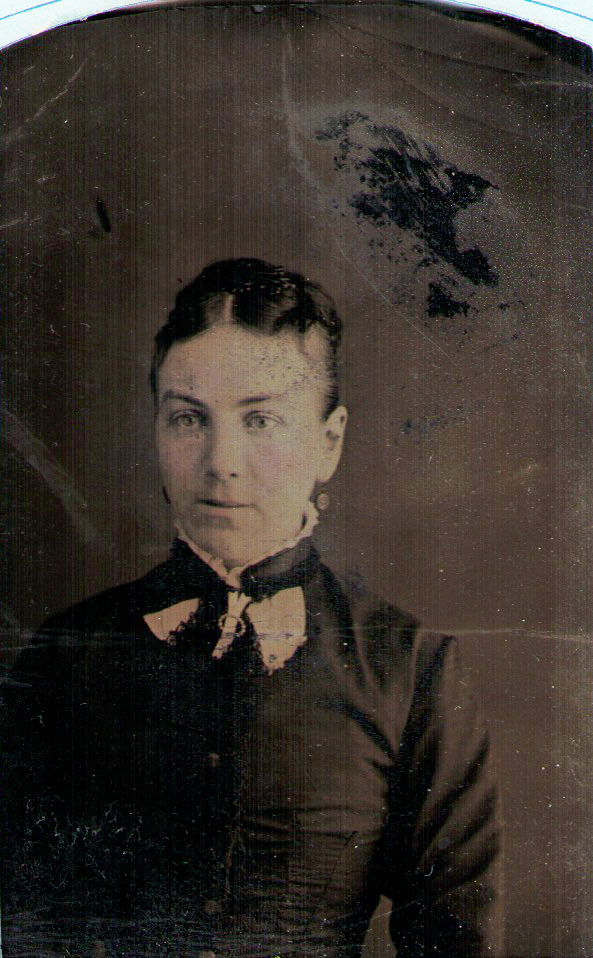
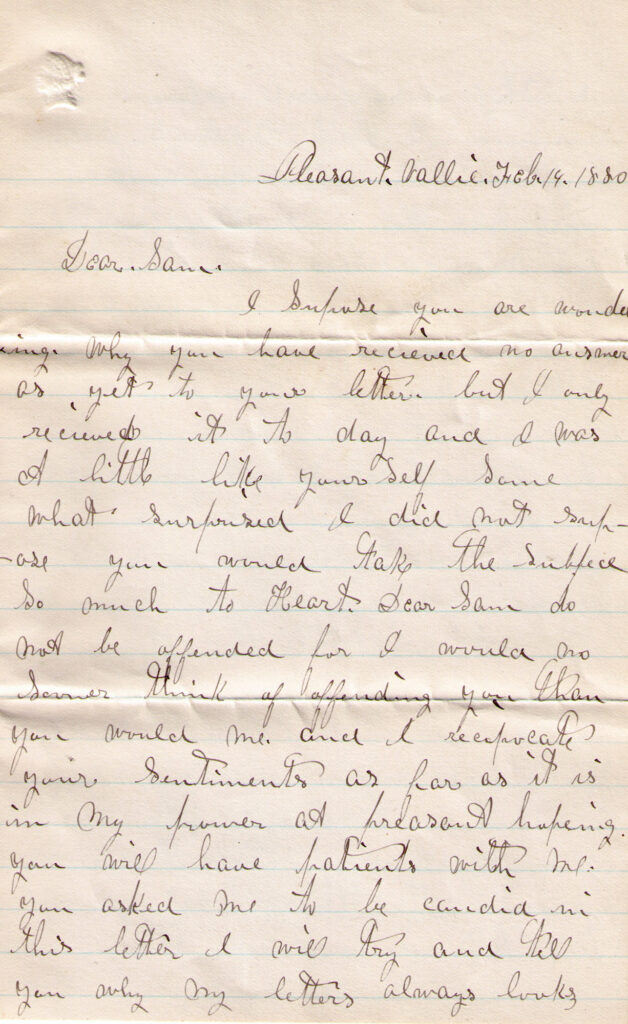
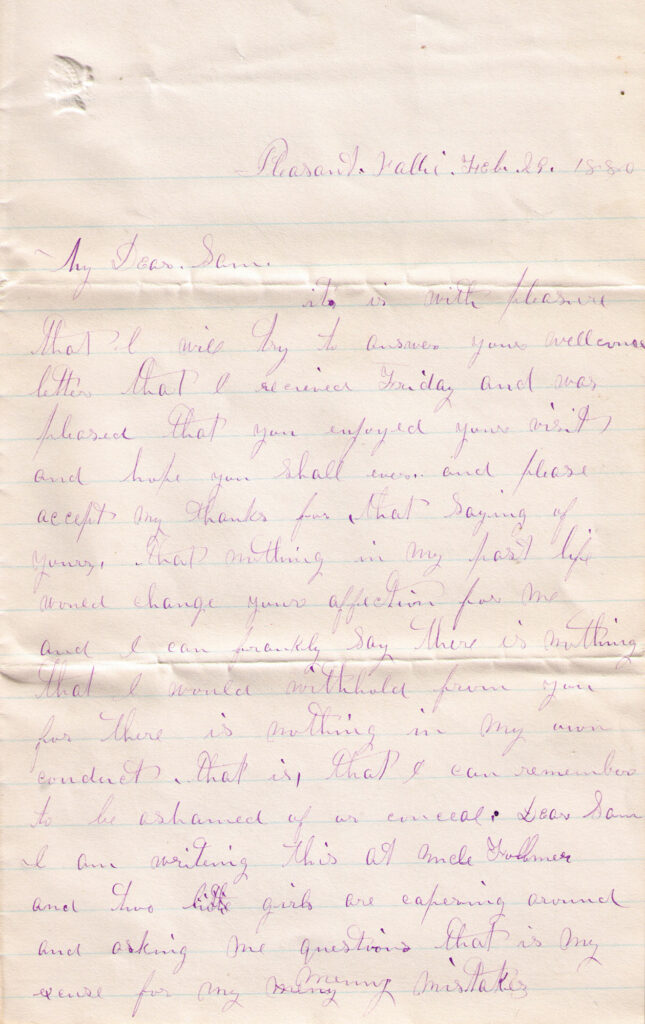

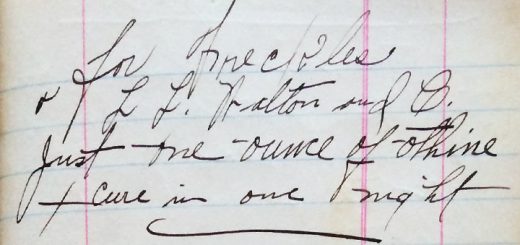
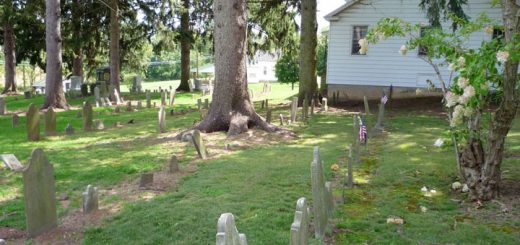









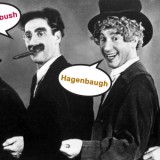



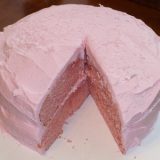
thanks for the interesting article….I don’t know how I feel about “peeking” into the inner-most thoughts of the ancestors. It would be different if they were discussing the price of wheat at the Dewart auction! Thanks for all the hard work you guys (and gals) do for the rest of the family. Can’t wait for the next installment!!
HAAA…..I agree but, you ARE looking forward to the next installment!! M
I sincerely hope no one finds and publishes the letters Marcia and I wrote to each other while I was undergoing military training in Fort Knox in 1966-67! Maybe we should find them and destroy them!
This is great stuff, keep it up. Can’t wait for the next installment.
AND, I can tell MY grandson Sam about his ggg grandfather Sam!